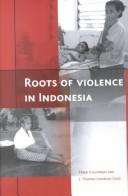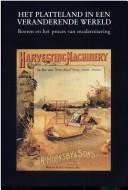| Listing 1 - 10 of 10 |
Sort by
|
Book
ISBN: 0444858075 Year: 1996 Publisher: Amsterdam : Noord-Holland,
Abstract | Keywords | Export | Availability | Bookmark
 Loading...
Loading...Choose an application
- Reference Manager
- EndNote
- RefWorks (Direct export to RefWorks)
Indonesië --- Indonesia --- Economic conditions --- -Congresses. --- History --- Conferences - Meetings --- Indonesië. --- United States of Indonesia --- Republic of the United States of Indonesia --- Republik Indonesia Serikat --- R.I. (Republik Indonesia) --- RI (Republik Indonesia) --- Indonesië --- Indonezii︠a︡ --- PDRI (Pemerintah Darurat Republik Indonesia) --- Pemerintah Darurat Republik Indonesia --- Republik Indonesia --- Yinni --- Republic of Indonesia --- Republiek van Indonesië --- إندونيسيا --- Indūnīsīyā --- جمهورية إندونيسيا --- Jumhūrīyah Indūnīsīyā --- Republica d'Indonesia --- Indonezia --- Endonèsie --- İndoneziya --- İndoneziya Respublikası --- Інданезія --- Indanezii︠a︡ --- Рэспубліка Інданезія --- Rėspublika Indanezii︠a︡ --- Indonezija --- Republika Indonezija --- Индонезия --- Република Индонезия --- Republika Indonezii︠a︡ --- Indonesya --- Induonezėjė --- インドネシア --- Indoneshia --- インドネシア共和国 --- Indoneshia Kyōwakoku --- Dutch East Indies --- Congresses.
Book
Abstract | Keywords | Export | Availability | Bookmark
 Loading...
Loading...Choose an application
- Reference Manager
- EndNote
- RefWorks (Direct export to RefWorks)

ISBN: 9789004489561 9789067181884 Year: 2002 Publisher: Leiden; Boston : BRILL
Abstract | Keywords | Export | Availability | Bookmark
 Loading...
Loading...Choose an application
- Reference Manager
- EndNote
- RefWorks (Direct export to RefWorks)
Jakarta, Sambas, Poso, the Moluccas, West Papua. These simple, geographical names have recently obtained strong associations with mass killing, just as Aceh and East Timor, where large-scale violence has flared up again. Lethal incidents between adjacent villages, or between a petty criminal and the crowd, take place throughout Indonesia. Indonesia is a violent country. Many Indonesia-watchers, both scholars and journalists, explain the violence in terms of the loss of the monopoly on the means of violence by the state since the beginning of the Reformasi in 1998. Others point at the omnipresent remnants of the New Order state (1966-1998), former President Suharto's clan or the army in particular, as the evil genius behind the present bloodshed. The authors in this volume try to explain violence in Indonesia by looking at it in historical perspective.

ISBN: 9004489568 9067181889 Year: 2002 Publisher: Boston BRILL
Abstract | Keywords | Export | Availability | Bookmark
 Loading...
Loading...Choose an application
- Reference Manager
- EndNote
- RefWorks (Direct export to RefWorks)
Book
ISBN: 9071617025 Year: 1987 Publisher: Amsterdam : NEHA,
Abstract | Keywords | Export | Availability | Bookmark
 Loading...
Loading...Choose an application
- Reference Manager
- EndNote
- RefWorks (Direct export to RefWorks)
Sociology of environment --- History of the Netherlands --- anno 1600-1699 --- anno 1700-1799 --- anno 1800-1999 --- 316.334.5 --- 728.1 <09> <492> --- Sociologie van het wonen, van de woonomgeving. Sociale ecologie. --- Woonhuizen. Woningbouw (algemeen)--Geschiedenis van ...--Nederland --- 316.334.5 Sociologie van het wonen, van de woonomgeving. Sociale ecologie. --- Sociologie van het wonen, van de woonomgeving. Sociale ecologie
Book
ISBN: 9052160619 Year: 1995 Volume: 225 Publisher: Den Haag : Instituut voor Nederlandse Geschiedenis,
Abstract | Keywords | Export | Availability | Bookmark
 Loading...
Loading...Choose an application
- Reference Manager
- EndNote
- RefWorks (Direct export to RefWorks)
History of Germany and Austria --- anno 1500-1799 --- Octroi --- Tolls --- Péages --- Baltic Sea Region --- Netherlands --- Baltique, Région de la mer --- Pays-Bas --- Commerce --- History --- Sources --- Histoire --- -330.9492 --- User charges --- Social sciences Economics Netherlands --- Elbing (Germany) --- -Harbors --- -History --- -Sources --- Port charges --- Harbors --- Péages --- Baltique, Région de la mer --- EPUB-ALPHA-D EPUB-LIV-FT LIVHISTO LIBRE-B --- 330.9492 --- Harbours --- Ports --- Seaports --- Channels (Hydraulic engineering) --- Hydraulic structures --- Terminals (Transportation) --- Elbing (Prussia) --- Elbląg (Poland) --- Poland --- Anchorages (Harbors) --- Commerce maritime --- Provinces-unies --- 16e-17e siecles
Book
ISBN: 9789004486454 9789067181921 Year: 2002 Publisher: Leiden; Boston : BRILL
Abstract | Keywords | Export | Availability | Bookmark
 Loading...
Loading...Choose an application
- Reference Manager
- EndNote
- RefWorks (Direct export to RefWorks)
History matters. At the beginning of a new century and amidst the turmoil of a new democracy, a historical perspective on modern Indonesia is needed more than ever. This innovative economic history connects back to the colonial era and helps to explain why the transition from colonialism to Independence and from the New Order to democracy has been so difficult and sometimes traumatic. The Emergence of a National Economy identitifies three grand themes in this transformation: globalisation, state formation and economic integration. Globalisation affected the Indonesian archipelago even before the arrival of the Dutch-the New Order experience was only the most recent wave. Modern state formation began in Java under Governor-General Daendels (1808-11) and culminated in the centralised, military-bureaucratic state of Soeharto's New Order (1966-98). A national economy emerged gradually from the 1930s as the Outer Islands were reoriented towards an industrialising Java. These three themes link chronological chapters from the pre 1800 period through the modern colonial era to the breakdown of the colonial system after 1930, the birth of modern Indonesia, the remarkable economic transformation under the New Order, and the 'meltdown' during the Asian crisis of 1997/98. This overarching story gives a unity and rythm to Indonesia's modern history, while helping to explain why the future is likely to be different. The four authors-senior scholars from Australia (Howard Dick), Germany (Vincent Houben), the Netherlands (Thomas Lindblad) and Indonesia (Thee Kian Wie)-draw on a very wide range of sources to combine the insights of history, economic history and economics.
1575 history of Asia --- Economic history --- Economic policy

ISBN: 9065503889 Year: 1994 Publisher: Hilversum : Verloren,
Abstract | Keywords | Export | Availability | Bookmark
 Loading...
Loading...Choose an application
- Reference Manager
- EndNote
- RefWorks (Direct export to RefWorks)
World history --- anno 1500-1799 --- anno 1800-1999 --- Agricultural innovations --- Agriculture --- Farming --- Husbandry --- Industrial arts --- Life sciences --- Food supply --- Land use, Rural --- Innovations, Agricultural --- Technological change in agriculture --- Technological innovations --- History --- Economic aspects&delete& --- Innovations --- Technology transfer --- History. --- Economic aspects --- Rural development --- Peasants --- Country life --- Développement rural --- Paysannerie --- Vie rurale --- Histoire --- Belgium --- Agricultural development projects
Book

Year: 1993 Publisher: Den Haag Nederlands Historisch Genootschap
Abstract | Keywords | Export | Availability | Bookmark
 Loading...
Loading...Choose an application
- Reference Manager
- EndNote
- RefWorks (Direct export to RefWorks)
Book
Year: 1994 Publisher: Groningen : Nijhoff,
Abstract | Keywords | Export | Availability | Bookmark
 Loading...
Loading...Choose an application
- Reference Manager
- EndNote
- RefWorks (Direct export to RefWorks)
| Listing 1 - 10 of 10 |
Sort by
|

 Search
Search Feedback
Feedback About UniCat
About UniCat  Help
Help News
News